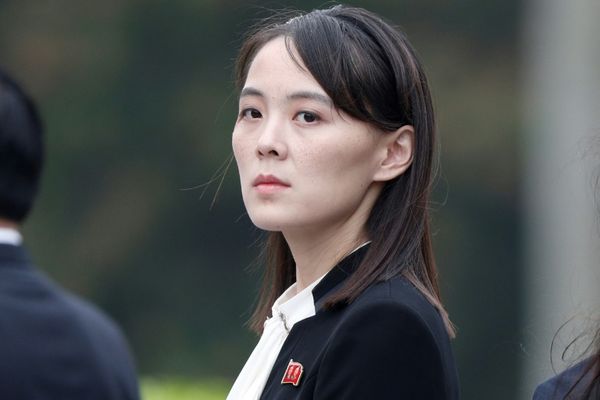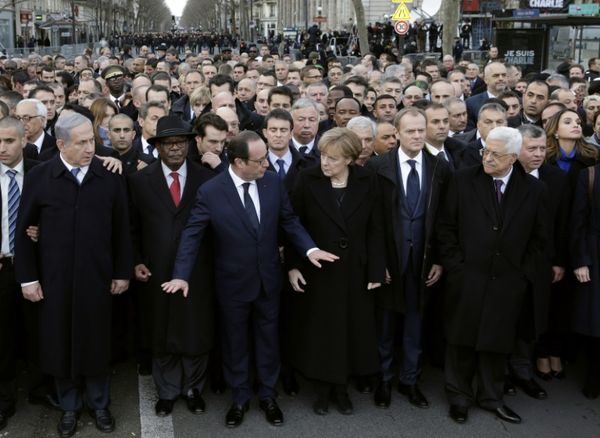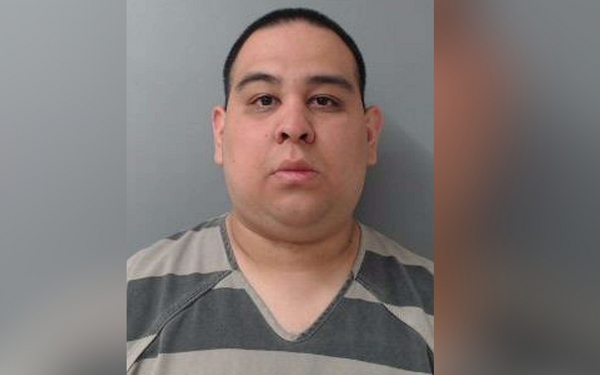
Thomas Mayor, a Torres Strait Islander man born on Larrakia country in Darwin, is signatory to the Uluru Statement from the Heart and the national Indigenous officer and Northern Territory branch deputy secretary of the Maritime Union of Australia. He is the author of Finding the Heart of the Nation: The Journey of the Uluru Statement towards Voice, Treaty and Truth.
Could it be that the Greens may join Pauline Hanson to oppose the Uluru Statement’s call for a First Nations Voice?
Alarm bells are ringing for many Aboriginal and Torres Strait Islander people — and for Greens supporters.
At the National Press Club two weeks ago, Greens leader Adam Bandt’s responses to questions about the Uluru Statement — and in particular a question about if his party will oppose a referendum bill to establish a First Nations Voice — were very different from his clear and direct “google it mate” moment.
He said “We support the [Uluru] Statement from the Heart”, which was all well and good. But then he deviated to explain the Greens’ policy: “Our view is that we need to tell the truth first.”
Bandt laid out a sequence of reforms that departs from the Uluru Statement: truth, then treaty, and finally a constitutionally enshrined Voice: “We genuinely think that is the best order to make it happen.”
And therein lies the problem.
The Uluru Statement from the Heart called for a specific sequence of reforms: step one, the establishment of a First Nations Voice — an Aboriginal and Torres Strait Islander representative body — enshrined in the constitution; step two, the representative body negotiates the establishment of a Makarrata commission: to supervise a process of agreement making (including treaties) between governments and First Nations and truth-telling about our history.
I know this sequence well. I spoke to it at the Uluru National Constitutional Convention on the morning the Uluru Statement was endorsed.
The sequence is important. It is logical. It is strategic. The roadmap we set at Uluru was written by thousands of Indigenous people, representing their families, communities and First Nations. It is the culmination of our many perspectives and experiences; it follows decades of advocacy and hard work.
The Greens’ reversal of the sequence — to put a First Nations Voice rigidly last — not only disrespects the First Nations consensus, it is a nonsense that serves only those who are already heard.
After all, don’t the politicians in Parliament — the mostly white men who decide the laws and policies that are harming First Nations people — already know the truth?
The Parliament has had royal commission reports into deaths in custody, Stolen Generations and youth in detention and many other reports that are chock-full of truth-telling. Yet still it ignores the recommendations. Politicians hear the prime minister’s Closing the Gap report each year, a report that always announces failure. And at each sitting, Australia’s decision-makers acknowledge Country, then go about trashing our bodies, lands and waters. Politicians already know the truth. Ignorance is bliss.
Most Australians already know the truth too. Most of us celebrated the national apology, delivered in 2008 by Labor prime minister Kevin Rudd. Most Australians support reconciliation — more than 90% according to the Reconciliation Australia barometer.
From various research reports and polling we know that most Australians are willing to vote in favour of a constitutionally enshrined Voice — more than 60% in some polls — and this is without running a well-resourced campaign.
A clear majority of Australians know the truth. They will translate that knowledge into a successful referendum at our request. All they need now is a prime minister and Indigenous affairs minister with the courage, determination and moral fortitude to provide us with the opportunity to answer the invitation.
There has been excellent truth-telling work, and it should continue. But truth-telling should not be a detour off the path we are already walking. Nor should a treaty.
Appallingly, as if to justify relegating our efforts to achieve a First Nations Voice, the Greens have been purporting to know what will be in a treaty, as if they — a mostly non-Indigenous political party — can determine a First Nations log of claims. As if they will negotiate for us.
Greens Senator Lidia Thorpe claims on her party’s website that once we have a treaty, we will “have a platform to bring peace to this country” and that a “treaty-first approach is essential to ensure that sovereignty is recognised”. Peace and recognition of sovereignty could be great outcomes in a treaty. But geez, the Commonwealth hasn’t even agreed to negotiate. The Commonwealth doesn’t even recognise our existence in the constitution.
Looking overseas, we know that treaty does not necessarily mean peace. Treaties were how colonisers legitimised their sovereignty over stolen lands. With treaty comes continuous legal and political wrangling. Political power — constitutional recognition and a right to choose our representation — is more important than rushing a half-baked treaty settlement.
While treaty talks have commenced at the state and territory level, research indicates far less support for treaty compared with support for a constitutionally enshrined Voice. Less than 50% of Australians support a treaty. Start laying some solid claims down and the numbers are likely to plummet. This is one of the reasons First Nations treaty experts predict that treaties may take decades to reach in this country — such is the complexity of negotiations more than 200 years after first contact.
First Nations people do not want to wait decades for governments to agree to treaty terms while our women and children are increasingly incarcerated. We need to reform the justice system now. We need housing, clean water, jobs and community services — and while we are not heard, our people are dying.
The Uluru Statement has proposed a First Nations Voice to Parliament, not a Blak Green Voice. First Nations people do not want to be Greensplained.
It would be a pity if those who vote Green for a wide range of reasons find they are also voting for a party that might side with One Nation on this crucial issue for First Nations peoples.







